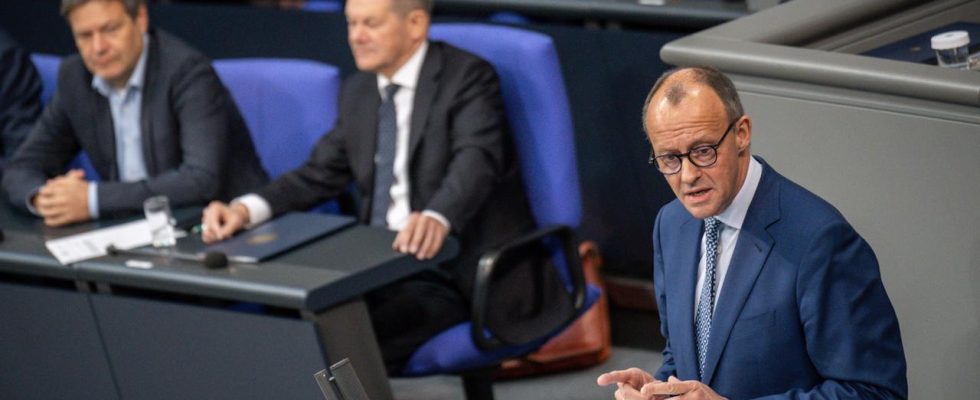The Growth Opportunities Act is intended to provide relief – but it tends to cause tension. The Union only wants to agree to the law if the traffic light deletes points from it. Mediations planned for tomorrow could apparently fail.
The Mediation Committee of the Bundesrat and Bundestag is actually supposed to meet tomorrow on the Growth Opportunities Act. According to information from the Reuters news agency, an agreement could still take some time. “We expect an adjournment,” said one of those involved. This assessment is shared by both the traffic light parties and the Union camp, said another person.
The Growth Opportunities Act is intended, among other things, to provide tax relief for companies. However, the Federal Council blocked the project on the grounds that the states would have to bear a large part of the costs. That is why the law is currently in the mediation process. The Union only wants to agree to the law if the SPD, Greens and FDP waive the planned abolition of the tax break for agricultural diesel. The government rejects this.
Scholz and Habeck for quick agreement
According to Reuters, an adjournment would not be a problem because the Federal Council will not meet again until March 22nd. If an agreement between the federal and state governments fails tomorrow, a new working group could be set up to negotiate a compromise on the agricultural issue.
Chancellor Olaf Scholz called for a quick agreement. It would be good if the Growth Opportunities Act were passed quickly despite all the political conflicts, said the SPD politician at an employer association event in Berlin. It would bring relief for small and large companies. Federal Economics Minister Robert Habeck also pushed for an agreement. “That has to happen now,” said the Green politician.
Merz: Tax losses should not burden farmers
An informal federal-state group with representatives of both the traffic light parties and the Union presented a compromise proposal to the mediation committee. This limited the tax relief for companies from just over seven to an average of 3.2 billion euros per year. The reason was that, according to the government proposal, the states and municipalities in particular would have had to bear a large part of the shortfall in tax revenue. “Now it has become even smaller, but these impulses should come. And to be honest, they are already coming too late,” said Habeck.
Union parliamentary group leader Friedrich Merz calculated that the federal government would still have tax losses of around 1.5 billion euros. “We are against these tax losses being financed through tax increases of around 500 million euros at the expense of farmers,” said the CDU chairman. “We are not prepared to accept that some are burdened so that others can be relieved. The two belong together.”
“I cannot understand why the Union, which likes to claim economic competence, is blocking this central project,” said FDP parliamentary group leader Christian Dürr to the “Tagesspiegel”. The CDU chairman Merz and CSU boss Markus Söder blocked “reliefs for purely party political reasons – at the expense of our companies.”
Michael Weidemann, ARD Berlin, tagesschau, February 20, 2024 6:23 p.m

